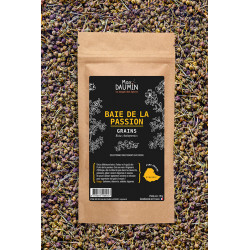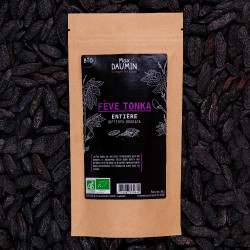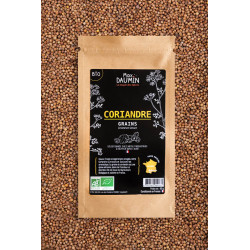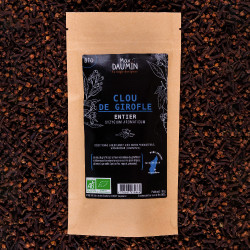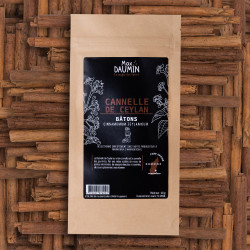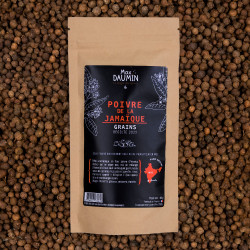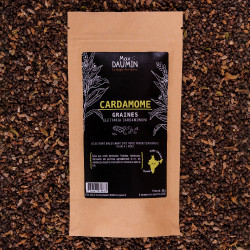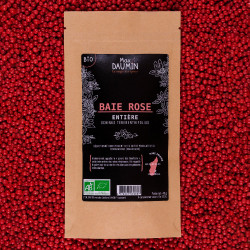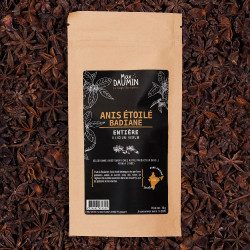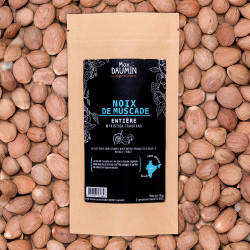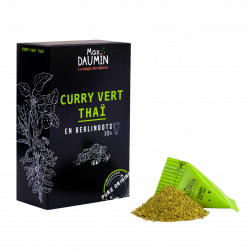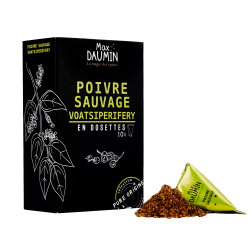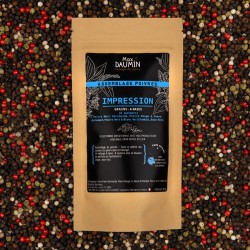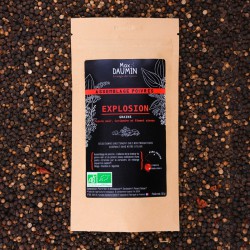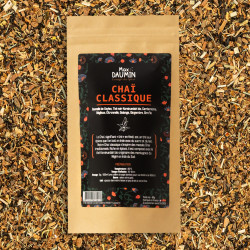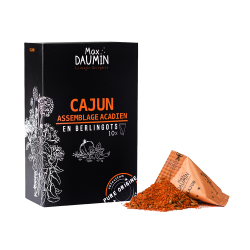Pili-Pili Bird Pepper
Named Pili-pili or bird pepper, this little pepper will not leave you indifferent. He is tiny but strong. With a strength of 8 on the Scoville scale, it is a powerful and hot pepper. It also brings powerful, fruity aromatic notes. It is planted especially for you in Manakara in Madagascar and is certified organic farming.
-
Net weight : 30g
-
Label : Organic Agriculture

-
Conditionnement : Resealable kraft bag

History
Plant & perfume
The bird pepper or Pili-pili is part of the pepper family, it is a cultivar of Capsicum frutescens. Very popular in Africa, the bird pepper is called Pili-pili in the Bantu languages (the Bantu languages are a set of more than 400 languages spoken in almost the entire southern half of Africa)< /p>
The given fruit is a small but vigorous and powerful pepper. Dried bird pepper hardly exceeds 2cm in length and ½ cm in thickness. In Madagascar, it is used in Papa sauce, a refreshing and spicy sauce at the same time (onion-garlic-lemon-bird's eye chili).
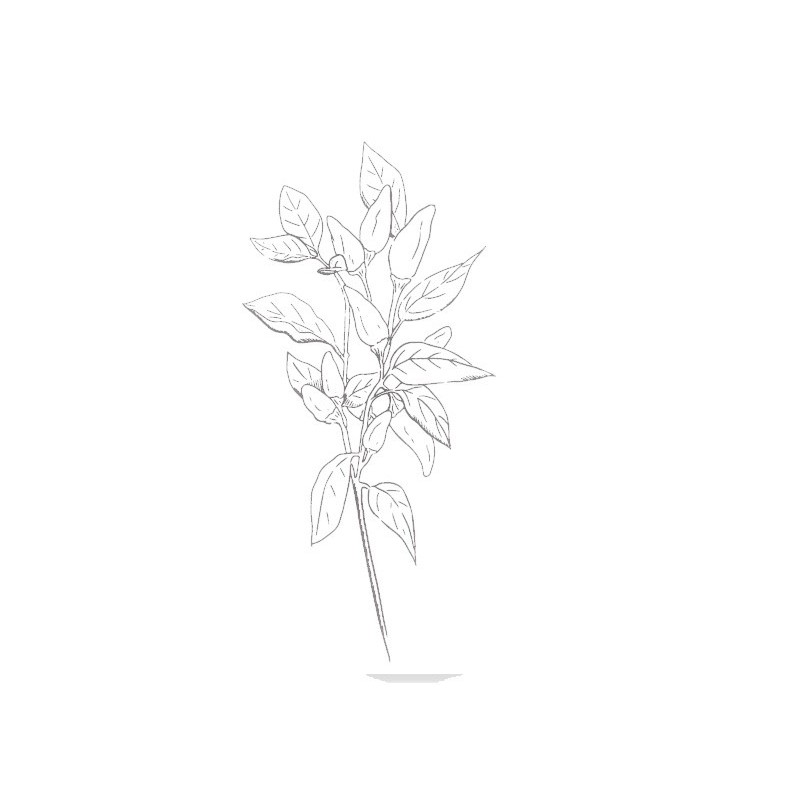

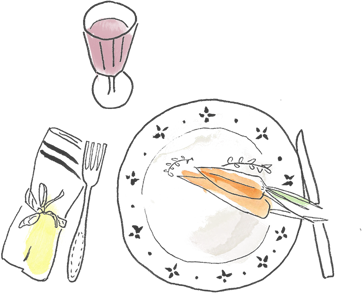
Benefits
Cooking and Virtue
Like all peppers, it can be used in three different ways: Directly in your dishes when cooking, it will spice up your recipes. In oil, which can be used for marinades or cooking and finally as a pepper, to be used when serving to spice up your plate. The bird pepper or Pili-pili goes with everything (meat, fish, vegetables, legumes, starches, cheeses, desserts)
If you want to reduce the power of this pepper, cook it by removing the seeds or even the white veins inside the pepper. You have a little less stamina. Indeed it is the seeds and these ribs which concentrate the capsaicin which gives this sensation of heat.
The bird pepper, like all peppers, is an antioxidant, painkiller and is rich in vitamin C.

Origins
A long journey
1492 sounded the discovery of peppers. Christopher Columbus brought back varieties of peppers from his first trip: some have become acclimatized to our latitudes, like the peppers found in the Basque country or Béarn. Others requiring a warmer climate are grown in the tropics. To find out more: https://maxdaumin.com/ the-grimoire/51-the-long-voyage-of-the-chili
This Pili-pili is specially planted for you by our producer along the Faraony River north of Manakara (Madagascar)


11 other products in the same category:

Customers who bought this product also bought:












